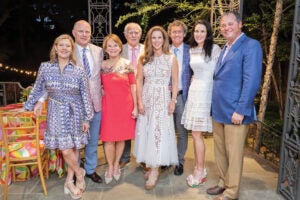AUSTIN, Texas — A random sample of more than 200 Houston residents last weekend voted strongly in favor of using more renewable energy, such as wind and solar power, after deliberating for a day and a half about ways to satisfy the area’s future electricity needs.
The Deliberative PollTM conducted by Professor James Fishkin, director of the Center for Deliberative PollingTM at The University of Texas at Austin, was commissioned by Houston Lighting and Power (HL&P) to help determine the opinions of its customers.
Under Texas regulations, electric utility companies must consult the public before asking the Public Utility Commission for permission to build or acquire new energy sources. The PUC mandated that scientific samples of the public should be consulted after they had had a chance to become informed in an interactive process. Deliberative Polling has become the process of choice under these criteria.
Fishkin said the already strong support for renewable energy and conservation increased dramatically after the poll participants were exposed to several hours of informed discussion with competing experts, commissioners of the Texas Public Utility Commission and representatives of HL&P.
Before the weekend, 51 percent of the sample believed HL&P should use more renewable energy such as wind and solar power, and 48 percent wanted more energy efficiency programs. After the deliberations, 76 percent supported more renewable choices, and 64 percent wanted additional energy efficient programs.
Respondents also were asked whether they would be willing to pay more on their monthly bills to support “electric generation using renewable technologies such as wind and solar power.” Before the weekend, a majority were not willing to pay anything more. After the weekend, a majority said they were willing to pay at least $6.50 a month more.
Deliberative Polling allows a random, representative sample of citizens to become informed on the issues and come to a considered judgment, Fishkin said. The process was pioneered in the United States at the National Issues Convention held on the UT Austin campus and broadcast on PBS in January 1996 with presidential candidates and Vice President Al Gore. The event was hosted by Jim Lehrer and reached about 10 million viewers.
Now, the method is playing a role in the policy process in the state of Texas. The Center for Deliberative PollingTM, housed in the UT Austin’s department of government, is working with the Public Utility Commission and regulated utilities throughout the state to provide for informed citizen consultation on electric utility matters. Scientific random samples of the public have been brought together by Central and Southwest Company to discuss policy issues affecting regulated public utilities in Corpus Christi, Abilene, and Shreveport, La. A similar sample was brought together in El Paso by El Paso Electric Company.The samples, after a weekend of deliberations, have made recommendations that have been incorporated into public policies or “Integrated Resource Plans” that utility companies file with the Public Utility Commission of Texas. Unprecedented investments in renewable energy, such as wind and solar power, as well as in conservation (“demand side management”) have resulted from the first three Texas Deliberative Polls on electric utility matters.
The Deliberative Polls on electric utility matters in Texas revive an ancient form of democracy-selection by lot for groups of a few hundred to deliberate together on public policy.
“Only in ancient Athens some 2,400 years ago did large-scale random samples deliberate together to make important public decisions,” said Fishkin.



